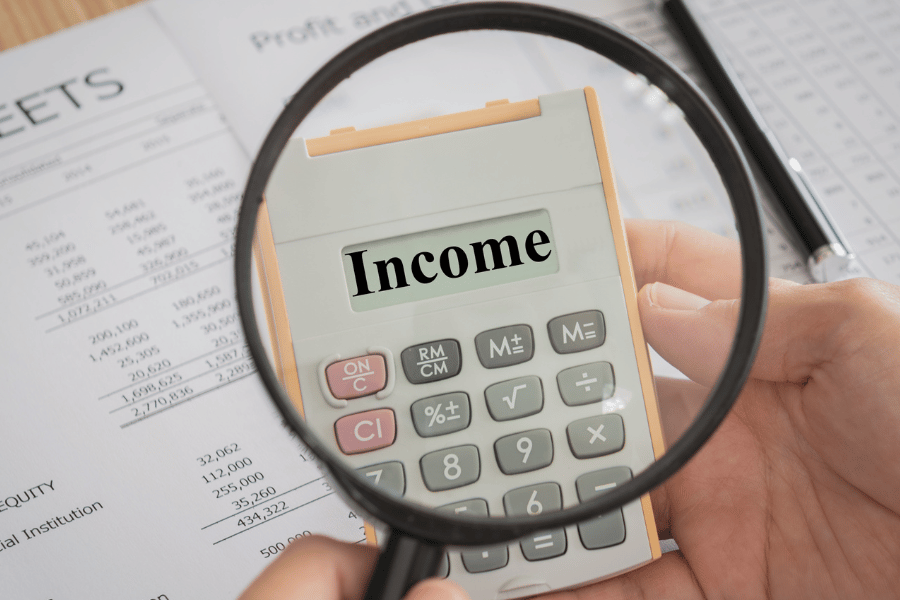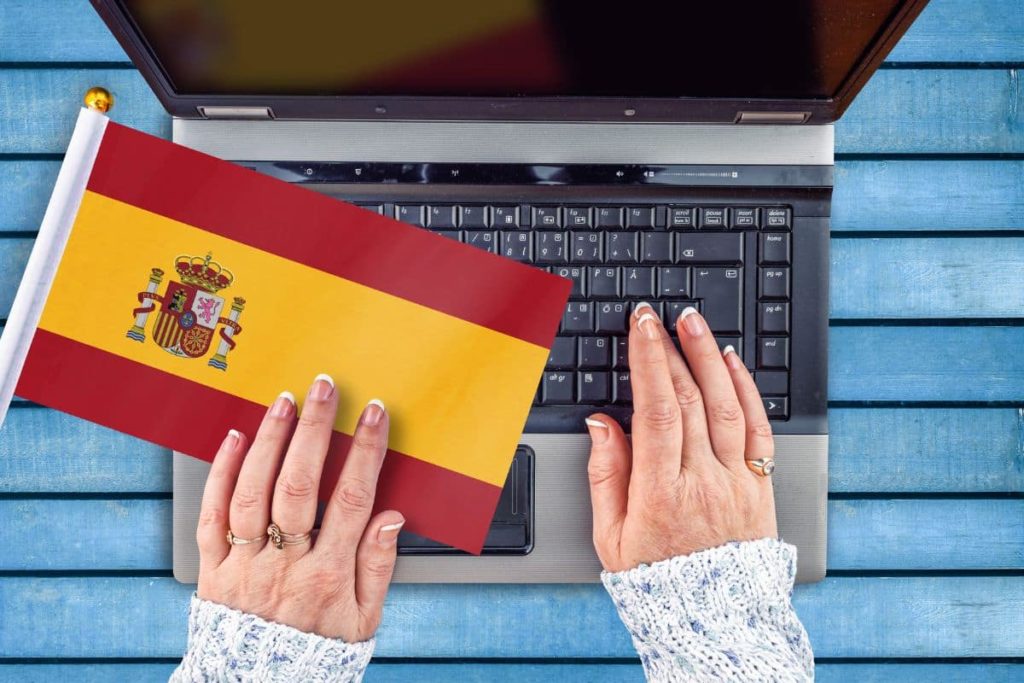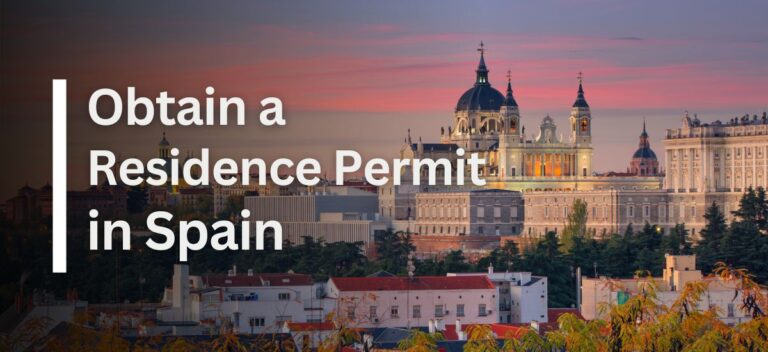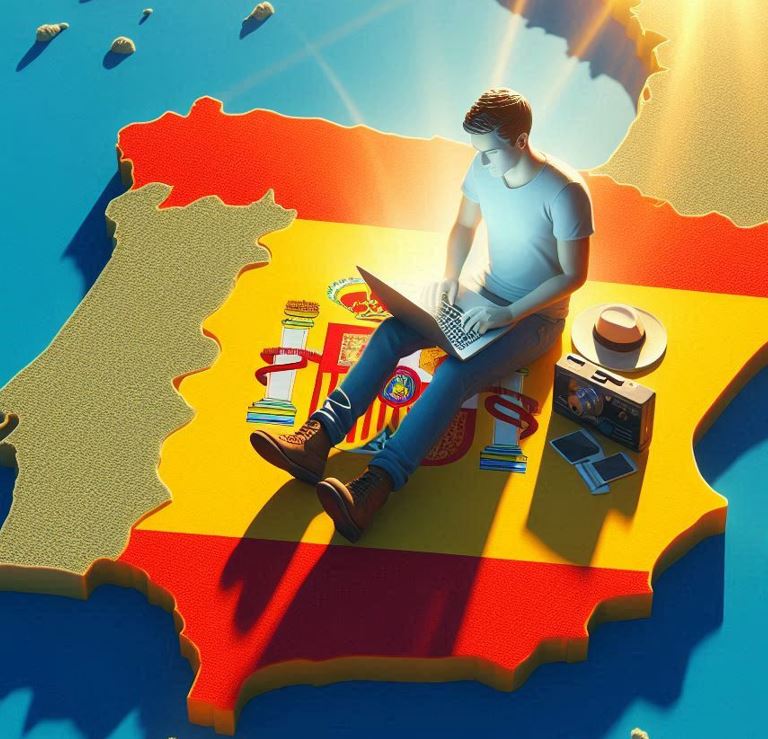Why Knowing the Eligibility Criteria for the Spanish Digital Nomad Visa is Essential for Remote Workers?
If you’re dreaming of working from sunny beaches or vibrant city streets in Spain, understanding the Eligibility Criteria for the Spanish Digital Nomad Visa is key. This visa caters specifically to remote workers wanting to live in Spain while working for non-Spanish companies. In this blog, we’ll break down the qualifications you need to meet, the income requirements, and other essential legal criteria.
Who Eligibility Criteria for the Spanish Digital Nomad Visa?
If you’re dreaming of working remotely from sunny Spain, the Spanish Digital Nomad Visa might just be your ticket to a new lifestyle. This visa is designed for individuals who want to live in Spain while working for a company outside the country. Let’s dive into who can actually apply for this visa and what the requirements are.
To be eligible for the Spanish Digital Nomad Visa, you need to meet several key criteria. The most important aspect is your employment situation. If you work for a company based outside of Spain, you’re already on the right path. Freelancers and remote employees are both welcome! But remember, it’s not just about where your paycheck comes from; it’s also about what kind of work you do.
Employment Requirements
First things first, let’s talk about employment. You must either be a remote worker for a company that isn’t based in Spain or be self-employed, providing services to clients outside of the country. This means if you’re a freelance graphic designer working for clients in the US, or a digital marketer for a UK-based company, you qualify! However, you’ll need to prove that at least 80% of your work comes from clients outside of Spain. This ensures that you’re genuinely working as a digital nomad, rather than taking a local job.
Income Criteria
Now, let’s talk about the money side of things. The Spanish government wants to make sure you can support yourself while living there, so you need to show that you have a stable income. The minimum income requirement is €2,268 per month for the main applicant. If you’re self-employed, this can be a bit tricky, but you can provide tax returns, client contracts, or other proof of income to demonstrate your financial stability. Think of it as presenting your financial situation, similar to how you’d show a solid credit score when applying for a loan.
Age and Nationality Considerations
While there are no strict age restrictions for applying for this visa, being of legal working age is a must. Plus, the Spanish Digital Nomad Visa is available to nationals of countries outside of the EU, as well as some EU countries under specific conditions. So, whether you’re from Canada, Australia, or India, there’s a good chance you can apply, provided you meet the other requirements.
Health Insurance Necessity
Let’s not forget about health insurance! Living in a foreign country means you need to stay covered. You’ll need to show proof of health insurance that meets the standards set by Spain. This ensures that you’re protected while enjoying all that Spain has to offer. Think of it as your safety net while you explore new cities, culture, and cuisine.
Background Checks and Documentation
No visa application is complete without some paperwork. Expect to undergo a background check to ensure you don’t have any criminal records. It’s just a routine step, but it’s crucial. Along with this, you’ll need to gather essential documents, such as your passport, proof of employment, proof of income, health insurance, and a clean criminal record. It might feel like a lot, but it’s all about keeping everything organized and straightforward.
So there you have it! If you fit the bill as a remote worker or freelancer, have a steady income, meet the health insurance requirements, and can present the necessary documentation, the Spanish Digital Nomad Visa could be your gateway to living and working in Spain. Imagine sipping coffee at a charming café in Barcelona or strolling along the beaches of Valencia while getting your work done. With the right qualifications, your dream can become a reality!
What Are the Income Requirements for the Spanish Digital Nomad Visa?
Thinking about applying for the Spanish Digital Nomad Visa? One of the most crucial aspects of your application will be demonstrating that you have a stable income. This visa is designed to ensure that you can support yourself while enjoying life in Spain, so let’s break down the income requirements you need to meet.

Minimum Monthly Income
To qualify for the Spanish Digital Nomad Visa, you must show that you earn a minimum monthly income of €2,268. This amount is set by the Spanish government to ensure you can sustain yourself while living in Spain. If you have dependents, such as a partner or children, the required income will increase. For a second applicant (e.g., a spouse), the income requirement is €850.50 per month, and for each additional dependent, it’s €283.40 per month. So, if you plan to bring family members with you, make sure to factor in these additional income requirements.
Proof of Income Sources
Now, you might be wondering how you can prove that you meet these income requirements. If you’re employed by a company outside Spain, providing your recent pay slips or a letter from your employer confirming your salary will suffice. If you’re self-employed, you’ll need to present tax returns or contracts with clients that verify your income level. Think of it as presenting your financial portfolio to show that you have a steady cash flow.
Variations in Income Stability
If your income varies month to month, don’t fret! You can still qualify as long as you can demonstrate that your average monthly income over the last year meets the requirement. This approach allows for freelancers or seasonal workers to still be eligible, even if some months are leaner than others. It’s all about showing that, on average, you’re making enough to get by.
Currency Considerations
Remember, the income requirement is expressed in euros. If you’re earning in a different currency, you’ll need to convert your income to euros. Make sure to check the current exchange rates, as fluctuations can affect your eligibility. You might find that your income meets the requirement in your local currency but falls short when converted. Keeping an eye on the rates can be essential, especially if you’re close to the threshold.
Health Insurance and Additional Costs
While the focus here is on income, it’s worth noting that you also need to account for your living expenses in Spain. The cost of living can vary widely depending on where you choose to settle. Major cities like Madrid and Barcelona can be more expensive than smaller towns. Be sure to budget for rent, food, and other expenses alongside the visa income requirements. Plus, don’t forget that health insurance is another expense you’ll need to cover, which adds another layer to your financial planning.
What Legal Criteria Must Be Met for the Spanish Digital Nomad Visa?
If you’re considering the Spanish Digital Nomad Visa, it’s crucial to know the specific legal criteria you must meet. This visa allows remote workers to live in Spain while employed by non-Spanish companies. Let’s break down the key requirements you need to fulfill to qualify for this exciting opportunity.

Employment Requirements
To qualify for the Digital Nomad Visa, you must be employed by a company that is not based in Spain. This means your paycheck should come from a business located outside of the country. If you’re self-employed, you should have clients primarily situated outside Spain. It’s essential to provide documentation that verifies your employment status or business activities. This could include contracts, invoices, or other relevant papers demonstrating your work arrangement.
Income Criteria
You’ll need to show that you have a stable income that meets a certain threshold to support yourself while living in Spain. This income requirement ensures that you can cover your living expenses without relying on local social services. The exact income amount may vary, but it’s typically set to align with the local cost of living. Be prepared to submit proof of income, such as bank statements, pay stubs, or tax returns, as evidence of your financial stability.
Health Insurance
Having comprehensive health insurance is another essential requirement. This insurance must cover you while residing in Spain, ensuring that you are protected against unexpected medical costs. It’s vital to have a policy that meets the minimum coverage requirements set by the Spanish government. Make sure to keep a copy of your health insurance policy handy, as you’ll need to provide documentation during the application process.
Criminal Background Check
A clean criminal record is crucial for obtaining the Digital Nomad Visa. You must submit a criminal background check from your home country, which demonstrates that you do not have any serious legal issues. This check typically needs to be recent, often issued within the last three to six months. It’s like getting a reference; you want to show that you’re a responsible and trustworthy individual.
Duration of Employment
To be eligible, you should have been employed with your current company or clients for a minimum period, usually at least three to six months. This criterion helps prove that you have a stable work situation and are not merely seeking the visa as a temporary arrangement. Providing evidence of your employment duration, such as contract dates or pay stubs, can support your application.
What Health Insurance Is Required for the Spanish Digital Nomad Visa?
When applying for the Spanish Digital Nomad Visa, one of the key components you need to consider is health insurance. Having the right coverage is essential not only for your visa approval but also for your peace of mind while living in Spain. Here’s what you need to know about the health insurance requirements for this visa.
Minimum Coverage Requirements
The Spanish government mandates that your health insurance must offer a minimum level of coverage. This means your policy should cover both primary and emergency medical care. It’s crucial to ensure that it meets the standards set by the Spanish authorities, which typically include coverage for:
- Medical consultations: Routine check-ups and specialist visits should be included.
- Hospitalization: Your insurance should cover the costs associated with hospital stays if needed.
- Emergency services: This includes ambulance services and emergency room visits.
- Prescription medications: Coverage for necessary medications prescribed by doctors.
- Repatriation: In case of serious illness or accident, your policy should include repatriation to your home country.
Private vs. Public Healthcare
As a digital nomad, you will not have access to Spain’s public healthcare system, which is primarily reserved for residents and citizens. Therefore, obtaining private health insurance is essential. Many international health insurance providers offer policies tailored for expats and digital nomads, making it easier to find suitable coverage.
No Waiting Periods
It’s advisable to select a health insurance plan that has no waiting periods for pre-existing conditions. This means that if you have a medical issue before moving to Spain, your insurance will cover treatment as soon as you arrive. This aspect is vital because you want to ensure that you are fully protected from the moment you step into the country.
Proof of Insurance
When you apply for the Digital Nomad Visa, you must provide proof of your health insurance coverage. This documentation typically includes a copy of your insurance policy or a certificate that outlines the coverage details. Make sure the documents are in Spanish or include a certified translation to avoid any misunderstandings with Spanish authorities.
International Coverage
Since you will be living and working in Spain but may travel throughout Europe or back to your home country, consider selecting a policy that provides international coverage. This ensures that you are protected no matter where you are, whether it’s in Spain or another country.
What Is the Timeline for Processing the Spanish Digital Nomad Visa?
If you’re considering applying for the Spanish Digital Nomad Visa, understanding the processing timeline is essential for planning your move. While the exact duration can vary based on several factors, here’s a general overview of what you can expect when applying for this exciting opportunity.

Initial Preparation
Before you even submit your application, you’ll need to spend some time gathering all the necessary documents. This can take anywhere from a few days to several weeks, depending on how quickly you can obtain items like your employment contract, proof of income, health insurance policy, and a criminal background check. The more organized you are in this initial phase, the smoother the process will be.
Application Submission
Once you have all your documents in order, you can submit your application. If you’re applying from outside Spain, this is typically done at a Spanish consulate or embassy in your home country. If you’re already in Spain, you can submit your application to the relevant immigration office. At this stage, it’s important to double-check that all documents are complete and correctly filled out to avoid delays.
Processing Time
The processing time for the Spanish Digital Nomad Visa typically ranges from 10 working days if applying from within Spain and 20 working days if applying from a Spanish consulate or embassy abroad. Several factors can influence the exact processing time, including:
- Location: Processing times can vary depending on the Spanish consulate or embassy’s workload and efficiency.
- Completeness of Application: Any missing documents or incomplete information may delay the process.
- Time of Year: High application volumes during peak periods, such as summer or holidays, may result in longer wait times.
It’s recommended to stay in contact with the consulate or embassy during this period to receive updates or to be informed if additional information is needed to avoid delays.
Receiving Your Visa
Once your application has been processed, you will be notified of the outcome. If approved, you’ll receive your Digital Nomad Visa, which will outline the duration of your stay and any conditions attached to it. If your application is denied, you should receive a letter explaining the reasons for the denial, which can help you understand what went wrong if you decide to reapply in the future.
After Approval
After receiving your visa, you typically have a 30-day window to enter Spain and activate your visa. Once you arrive, you may need to complete some additional steps, such as registering with local authorities or obtaining a residence card, which can add a few extra weeks to your timeline.
Understanding the timeline for processing the Spanish Digital Nomad Visa helps set realistic expectations for your move. From gathering documents to waiting for approval, the entire process can take several months. By staying organized and keeping communication open with the consulate or embassy, you can navigate this timeline more efficiently and prepare for your exciting new adventure in Spain.
FAQs
Can Freelancers With Clients in Spain Apply?
While the primary focus is on clients outside of Spain, having a minor number of clients in the country usually doesn’t disqualify you. Just ensure that your primary income source is foreign.
Can Students Apply for This Visa?
Generally, students aren’t eligible unless they have a steady income from a remote job. It’s best to consult with a legal advisor to explore your options.
Is There a Language Requirement for the Visa?
While knowing Spanish can be beneficial, it’s not a formal requirement for the visa application. However, learning the language can make your stay much more enjoyable.
Conclusion
The Eligibility Criteria for the Spanish Digital Nomad Visa involves understanding various requirements, from employment type to income levels and legal considerations. By ensuring you meet these criteria and preparing your documents thoroughly, you can take the first steps toward living and working in one of Europe’s most vibrant countries. If you have any more questions or need further guidance, don’t hesitate to reach out. Your dream of a nomadic life in Spain could be just an application away!






